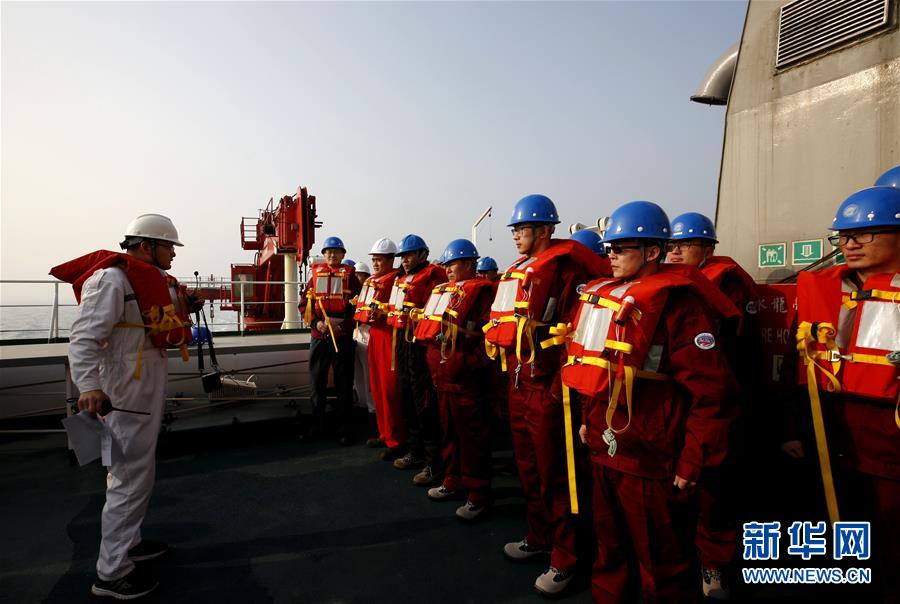
1, ERP——Enterprise ResOurce Planning Enterprise Resource Planning System refers to a management platform built on the basis of information technology to provide decision-making and operation means for enterprise decision-making levels and employees with systematic management ideas.
2. ERP, the full Chinese name is Enterprise Resource Plan, is a computer system for enterprise resource management and business process management, focusing on the utilization, management and integration of enterprise resources. ERP takes a plan as the starting point, which can be a large order in the market or a strategic goal of the enterprise.
3. Enterprise Resource Planning, that is, ERP (Enterprise Resource Planning), is a management platform based on information technology and provides decision-making and operation means for enterprise decision-making and employees with systematic management ideas.
4. Simply put, it is the information management platform of the enterprise. The most core part of ERP is the purchase, sale and storage of the enterprise. From the purchase of raw materials to the sales and transportation after the completion of the product, it can be clear at a glance in the computer, which is convenient for the management of the enterprise. Compared with the traditional operation method, it is more reliable and reliable, which can effectively avoid human mistakes and enterprise waste.
1. ERP system is a brief of EnterpriseResourcePlanning It refers to a management platform built on the basis of information technology, integrating information technology and advanced management ideas, and providing decision-making means for enterprise employees and decision-makers with systematic management ideas.
2. Extend knowledge. At present, the ERP brands in the domestic market include: SAP, Oracle, Oracle.
3. Introduction to erp ERP is the abbreviation of Enterprise Resource Planning. In the 1990s, an American IT company based on computer information, IT technology development and enterprise supply chain management at that time. The demand of reason, predicting the development trend and impending change of enterprise management information system in the information age in the future, and put forward this concept.
4. To understand the knowledge involved in ERP, I recommend your book Principles and Applications of MRPII/ERP, Tsinghua University Press. Take some time to understand this book, and your ERP principle will be passed.In this process, you also have to learn financial management, production and operation and other relevant knowledge.
5. ERP, the full Chinese name is Enterprise Resource Planning, is a computer system for enterprise resource management and business process management, focusing on the utilization, management and integration of enterprise resources. ERP takes a plan as the starting point, which can be a large order in the market or a strategic goal of the enterprise.

1. ERP is the abbreviation of Enterprise Resource Planning, which refers to the combination of information technology and advanced management ideas based on information technology. With systematic management ideas, enterprise employees and decisions The policy level provides a management platform for decision-making means.
2. The so-called ERP refers to the software and systems used to plan and manage all core supply chains, production, services, finance and other processes of the organization. ERP can be used to automate and simplify the activities of the entire enterprise or organization, such as accounting and procurement, project management, production management, compliance and supply chain operations.
3. What is ERP? What are the functions? ERP is a system based on information technology to help enterprises build a system to manage various businesses.
4. ERP is a transcendence of MRPII. In essence, ERP is still with MRPII as the core, but it surpasses the traditional MRPII in function and technology. It is a customer-driven, time-based enterprise resource plan for the management of the entire supply chain.
5. As an integrated software terminal, the key contents of ERP are the enterprise's materials, finance, information and human resources.
6. ERP system refers to a management platform based on information technology and providing decision-making and operation means for enterprise decision-making and employees with systematic management ideas.It is a new generation of integrated management information system developed from MRP (Material Demand Plan), which expands the functions of MRP, and its core idea is supply chain management.
Binance download iOS-APP, download it now, new users will receive a novice gift pack.
1, ERP——Enterprise ResOurce Planning Enterprise Resource Planning System refers to a management platform built on the basis of information technology to provide decision-making and operation means for enterprise decision-making levels and employees with systematic management ideas.
2. ERP, the full Chinese name is Enterprise Resource Plan, is a computer system for enterprise resource management and business process management, focusing on the utilization, management and integration of enterprise resources. ERP takes a plan as the starting point, which can be a large order in the market or a strategic goal of the enterprise.
3. Enterprise Resource Planning, that is, ERP (Enterprise Resource Planning), is a management platform based on information technology and provides decision-making and operation means for enterprise decision-making and employees with systematic management ideas.
4. Simply put, it is the information management platform of the enterprise. The most core part of ERP is the purchase, sale and storage of the enterprise. From the purchase of raw materials to the sales and transportation after the completion of the product, it can be clear at a glance in the computer, which is convenient for the management of the enterprise. Compared with the traditional operation method, it is more reliable and reliable, which can effectively avoid human mistakes and enterprise waste.
1. ERP system is a brief of EnterpriseResourcePlanning It refers to a management platform built on the basis of information technology, integrating information technology and advanced management ideas, and providing decision-making means for enterprise employees and decision-makers with systematic management ideas.
2. Extend knowledge. At present, the ERP brands in the domestic market include: SAP, Oracle, Oracle.
3. Introduction to erp ERP is the abbreviation of Enterprise Resource Planning. In the 1990s, an American IT company based on computer information, IT technology development and enterprise supply chain management at that time. The demand of reason, predicting the development trend and impending change of enterprise management information system in the information age in the future, and put forward this concept.
4. To understand the knowledge involved in ERP, I recommend your book Principles and Applications of MRPII/ERP, Tsinghua University Press. Take some time to understand this book, and your ERP principle will be passed.In this process, you also have to learn financial management, production and operation and other relevant knowledge.
5. ERP, the full Chinese name is Enterprise Resource Planning, is a computer system for enterprise resource management and business process management, focusing on the utilization, management and integration of enterprise resources. ERP takes a plan as the starting point, which can be a large order in the market or a strategic goal of the enterprise.

1. ERP is the abbreviation of Enterprise Resource Planning, which refers to the combination of information technology and advanced management ideas based on information technology. With systematic management ideas, enterprise employees and decisions The policy level provides a management platform for decision-making means.
2. The so-called ERP refers to the software and systems used to plan and manage all core supply chains, production, services, finance and other processes of the organization. ERP can be used to automate and simplify the activities of the entire enterprise or organization, such as accounting and procurement, project management, production management, compliance and supply chain operations.
3. What is ERP? What are the functions? ERP is a system based on information technology to help enterprises build a system to manage various businesses.
4. ERP is a transcendence of MRPII. In essence, ERP is still with MRPII as the core, but it surpasses the traditional MRPII in function and technology. It is a customer-driven, time-based enterprise resource plan for the management of the entire supply chain.
5. As an integrated software terminal, the key contents of ERP are the enterprise's materials, finance, information and human resources.
6. ERP system refers to a management platform based on information technology and providing decision-making and operation means for enterprise decision-making and employees with systematic management ideas.It is a new generation of integrated management information system developed from MRP (Material Demand Plan), which expands the functions of MRP, and its core idea is supply chain management.
 Binance APK
Binance APK
336.62MB
Check Binance market
Binance market
261.89MB
Check Binance US
Binance US
437.75MB
Check Binance download
Binance download
855.17MB
Check Binance US
Binance US
798.19MB
Check Binance app
Binance app
751.17MB
Check Binance app
Binance app
275.35MB
Check Binance download APK
Binance download APK
393.36MB
Check Binance app download Play Store
Binance app download Play Store
593.87MB
Check OKX Wallet to exchange
OKX Wallet to exchange
359.38MB
Check Binance Download for PC
Binance Download for PC
176.48MB
Check Binance login
Binance login
994.87MB
Check OKX Wallet app
OKX Wallet app
842.37MB
Check Binance APK
Binance APK
753.46MB
Check Binance wallet
Binance wallet
329.52MB
Check OKX Wallet
OKX Wallet
662.64MB
Check OKX Wallet apk download
OKX Wallet apk download
272.81MB
Check Okx app download
Okx app download
634.99MB
Check Binance APK
Binance APK
874.22MB
Check Binance market
Binance market
649.11MB
Check Binance download Android
Binance download Android
341.23MB
Check Binance APK
Binance APK
363.24MB
Check Binance APK
Binance APK
362.25MB
Check Binance Download for PC
Binance Download for PC
235.18MB
Check OKX Wallet apk download
OKX Wallet apk download
387.24MB
Check Binance download APK
Binance download APK
192.98MB
Check OKX Wallet extension
OKX Wallet extension
841.72MB
Check Binance login
Binance login
644.34MB
Check Okx app download
Okx app download
458.29MB
Check Binance login
Binance login
494.72MB
Check Binance download
Binance download
132.32MB
Check OKX Wallet extension
OKX Wallet extension
841.53MB
Check OKX Wallet download
OKX Wallet download
516.64MB
Check Binance download APK
Binance download APK
375.85MB
Check okx.com login
okx.com login
639.11MB
Check Binance download Android
Binance download Android
719.19MB
Check
Scan to install
Binance download iOS to discover more
Netizen comments More
1182 继继绳绳网
2025-01-23 08:49 recommend
2442 视同秦越网
2025-01-23 07:49 recommend
2055 宝珠市饼网
2025-01-23 07:15 recommend
2918 鹤鸣九皋网
2025-01-23 06:41 recommend
2828 铜盘重肉网
2025-01-23 06:30 recommend